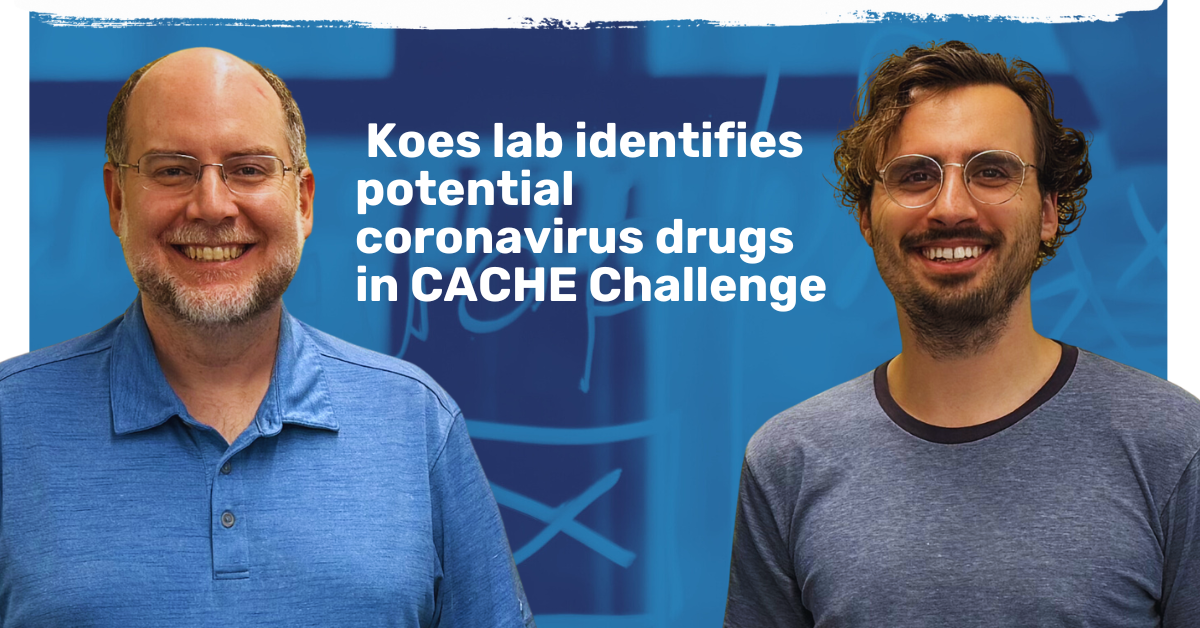Associate Professor David Koes and PhD candidate Ian Dunn identified promising early-stage molecules that could lead to new treatments for coronaviruses in the second CACHE Challenge.
The CACHE (Critical Assessment of Computational Hit-Finding Experiments) Challenges are global competitions that ask computational scientists to predict molecules that bind to disease-associated protein targets. In this round of the challenge, 22 teams proposed molecules that bind to coronavirus proteins with the goal of creating treatments to prevent future outbreaks.
Koes and Dunn, a student in the Joint Carnegie Mellon-University of Pittsburgh PhD Program in Computational Biology, earned the second highest score. Teams were ranked based on the number and strength of the molecules they identified.
To identify their small molecules, Koes and Dunn used software that was developed in their lab.
“This method, GNINA, looks at a small molecule and tries to figure out how the molecule might fit into a binding pocket,” Dunn said. “It assigns a score to this molecule and tries to estimate how well it may bind to a target protein, in this case the coronavirus protein.”
Their machine learning method evaluated more than 4 billion molecules. They then submitted the 100 compounds with the best docking scores to the competition.
“I think one of the important things is we used what our tools said were the best compounds, as opposed to having a human expert come in and cherry pick which ones they think are the best,” Koes said. “It’s really evaluating the quality of our tool.”
This is the second CACHE Challenge that Koes and Dunn have participated in. In the first challenge, they earned the highest score for predicting potential Parkinson’s disease drugs.
The CACHE Challenges provide high-quality experimental feedback on computational hit-finding predictions. Koes hopes that future challenges will continue to lead to improvements in the field of drug discovery.
“No one’s getting 90% success rates, and the field is moving quickly in terms of using deep learning and AI approaches,” he said. “Hopefully, we’ll see this shift from barely getting things right to getting things right most of the time.”
View the results from the second CACHE Challenge here.


